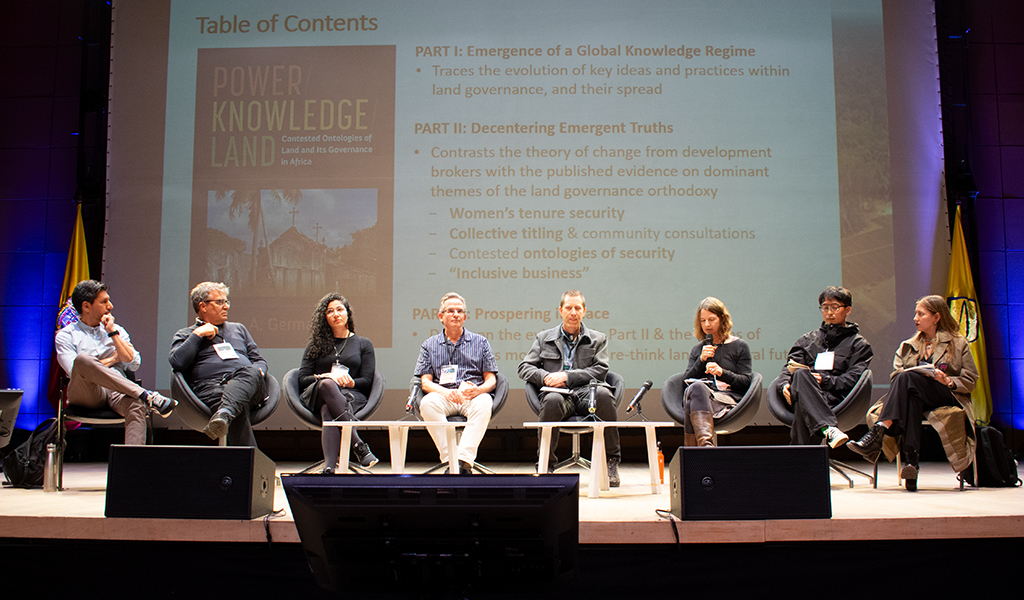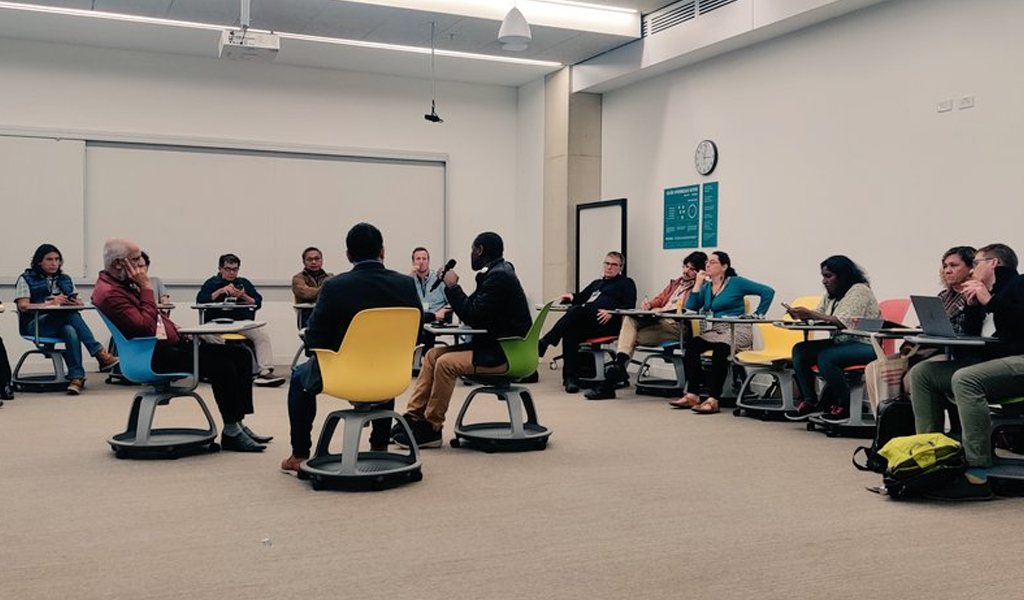Major land sales organised by states and businesses continue to cause problems for rural communities and indigenous groups, a landmark conference in Colombia has found.

Over the past 20 years, more than 30 million hectares of agricultural land has been sold off around the world according to the Land Matrix. But whilst the issue was frequently reported on 15 years ago, the issue has largely dropped off the news agenda. Headline-grabbing large land grabs have been replaced by smaller deals, focused around growth for agribusinesses, energy, conservation and carbon investments.
The International Conference on Global Land Grabbing in March, co-organised by IDS, identified landgrabs taking place across the world, including:
- Privatisation of land in the city of Bukavu, eastern DRC
- New enclosures in Welsh farmland
- The rise of corporate conservation in the Appalachians, USA
- The undermining of Palestinian food sovereignty
- Digital green grabs in Brazil’s Matopiba frontier
Read all the papers from the conference here
The conference, hosted at the University of Los Andes in Bogotá, saw 500 participants from over 50 countries come together – a combination of researchers, activists and local groups involved in defending and reclaiming land.
The conference was organised by the Land Deal Politics Initiative (LDPI), a network set up by the International Institute of Social Studies, City University of New York, The Institute for Poverty, Land and Agrarian Studies (PLAAS), IDS, and Cornell University in 2010.

Threat to rural communities
“Our conference identified that even though awareness of land grabs has faded, rural communities are still under threat from losing their land,” said Ian Scoones, Professorial Fellow at the Institute of Development Studies. “To counter this, securing land and preventing land grabbing must go hand in hand with inclusive, redistributive forms of economic development, backed by state support, peace and strong legal frameworks to protect land rights.”
Read an editorial by Ian Scoones and Angela Serrano in Open Democracy.
The location of the conference in Bogotá, Colombia was itself significant, due to the end of paramilitary violence and increasing debates around social justice and agrarian reform.
The conference heard how projects in Colombia to prevent deforestation and mitigate climate change, under the UN backed REDD+ framework, are creating tensions with rural communities. In coastal Caribbean areas of the country, mangrove forests continue to witness disputes over land and water access. The Colombia palm oil industry was also accused of abuses of power and evasion of responsibilities towards its workers, particular women, as it seeks to increase land control in the country.
During the conference, the Colombian minister of agriculture and rural development, Jhenifer Mojica, announced her country would host the next International Conference on Agrarian Reform and Rural Development (ICARRD) conference in 2026, 20 years after a landmark event held in Porto Allegre, Brazil.
New forms of land-grabbing
Recent analysis has outlined how land grabbing has evolved since the LDPI was established 14 years ago. The global financial crisis of 2008 had led to farmland emerging as a relatively safe and high-earning asset class, particularly given ongoing food and fuel shortages.
The global furore that emerged to push back against these land grabs had some successes, with new guidelines and campaigns to encourage improved management of land titles, but with variable results. Meanwhile, new forms of technology, such as drones, enable increasingly efficient extraction of land, and the rise of authoritarian populist rhetoric has shaped the way land is seen, often opening space for land grabbing in countries, notably in Brazil under the presidency of Jair Bolsanaro.
In addition, concerns over climate change are driving and facilitating a rush of green grabbing via carbon offsets, biofuels and extraction of critical minerals such as lithium and cobalt.
Read more on the history of land grabbing in the Journal of Peasant Studies
The conference heard how policy debates to tackle these issues are often stuck at global or national levels, doing little to respond to the specific challenges faced by rural communities and with an over-reliance on market-based solutions. Many argued for the need for more alternatives to emerge from below, centred around notions of food sovereignty and environmental care.
IDS research on land grabbing
IDS has a long track record of conducting research into land grabbing. Here is a selection of research from the last 12 years:
Brazil’s Cerrado as a land grabbing frontier
Frontier Territories: Countering the Green Revolution Legacy in the Brazilian Cerrado (2023)
Desert reclamation in the Sahel
The Great Green Wall as a Social-Technical Imaginary (2024)
Critical mineral extraction in Chile and Argentina
Scale of conflict between mineral mines and indigenous peoples revealed (2023)
Carbon and green grabbing
Climate change and critical agrarian studies (2023)
Nature-based Solutions projects must make justice their first priority (2023)
Carbon Conflicts and Forest Landscapes in Africa (2015)
Green Grabbing: a new appropriation of nature? (2012)
Water grabbing
The Global Politics of Water Grabbing (2013)
IDS Opinion, 15 March 2024: What happened to the global land grab?
